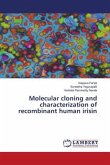Ovaries maintain and produce functional female gametes, oocytes, for fertilisation. Oocytes develop inside cellular assemblies (ovarian follicles) before birth and can reside there for up to 50 years in the human. Despite recent inroads, the precise mechanisms of initial follicle recruitment and growth remain unclear. Although the pituitary gonadotrophins play a role in this developmental process, locally produced factors have been implicated strongly in initiation of follicle growth. It is known that fibroblast growth factor 2 (FGF2) is a powerful mitogen for follicular granulosa cells in culture and initial studies undertaken in this project were successful in detecting FGF2 gene expression in ovarian biopsies from fertile healthy women. FGF2 and Follicle stimulating hormone receptor (FSHR) gene expression were investigated in follicles using laser microdissection, quantitative RT-PCR, in situ hybridisation and immunohistochemistry. The work presented here provides evidence that FGF2 and FSHR are present in small follicles and that their actions may be stimulatory or inhibitory to initial follicle recruitment.








